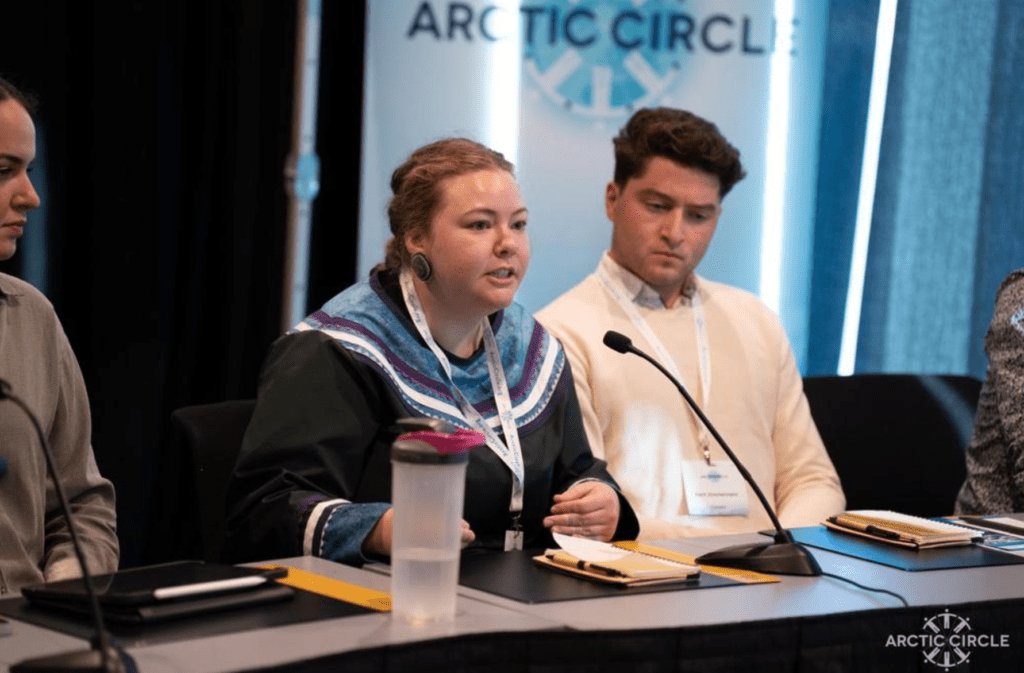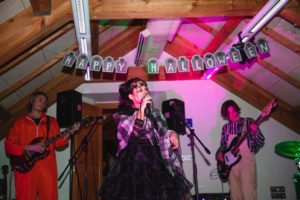The Arctic Circle Assembly took place this October in Reykjavik, Iceland. Attendants included the crown prince of Norway, the president of Estonia, and the prime minister of Greenland, and they met to discuss important issues pertaining to the Arctic region. Including these impressive guests was one of IE University’s own, Zach Zimmermann. I had the opportunity to speak with the 3rd year BIR student about his experience both as an attendee and panelist, and I gained insights into how he views the future of the Arctic during these turbulent times.
Zach took part in the conference as a delegate on behalf of the organization Students on Ice. The organization, based in his home country of Canada, organizes expeditions and summits to gather youth from the Arctic to shape the future leaders of the region. Because of his work in the Arctic Policy Cohort with SOI, he received an invitation “out of the blue” and leaped at the chance to go to Iceland. A handful of delegates from Northern Canada, including Zach, were picked to host a panel regarding their work. They spoke on how important it was to include young voices at the decision-making table, as the policies enacted today will most directly affect our own generation. Hailing from all Canadian territories, the students, each with different backgrounds, demonstrated to shareholders young people’s value towards pressing discussions.
After hosting the panel, the students attended other sessions. The topics ranged from climate change, to mental health, to the war in Ukraine. With all these figureheads, I asked Zach whether he felt as if the assembly was an echo-chamber of empty words from leaders pining for change. He answered,
“The conference was pretty unified, in terms of climate change. There was a wide consensus that the Arctic is very vulnerable to climate change.”
He then elaborated by offering the many examples of discourse that were present. One aspect was the disconnect between countries and their Indigenous inhabitants. Mary Simon, the Governor General of Canada, spoke on this issue. Her Excellency is Indigenous and spoke in her native Inuktitut language on the nuances of the Indigenous identity in the Arctic today.

Another glaring hole was the fact that no Russian delegation attended, although they occupy over 50% of Arctic landmass and account for almost half of its population. Zach said this was a topic that was discussed amongst virtually every stakeholder. Proponents argued that the Arctic is a good region to attempt to reintegrate. The Arctic Council, the region’s international forum, has been suspended due to the war since February of last year. Due to many reasons, any strong international Arctic policy is null without the support of the Russian Federation.
When asked who was the most inspiring speaker, Zach promptly replied, “my peers.” I was taken aback, as I was expecting to hear the name of a famous dignitary. He went on to say that the voices of his Indigenous peers were particularly insightful in viewing what the Arctic will look like in the future amidst so much uncertainty. Their discussions were raw and emotional, and overall inspiring. Speaking with Zach left me similarly inspired and keeps me hopeful that through more discussion, real action driven by our generation will take place. The assembly seemed to prioritize uplifting typically marginalized groups when it comes to public policy, be it Indigenous people or young adults. The question of experience is often used to disparage youth involvement in politics, but it is in conferences like these that younger voices need to be the loudest in the room. This call must be heard to an even greater degree in a region like the Arctic, as the temperature warms at an anomalous rate.
Featured image by: arcticcircle.org






